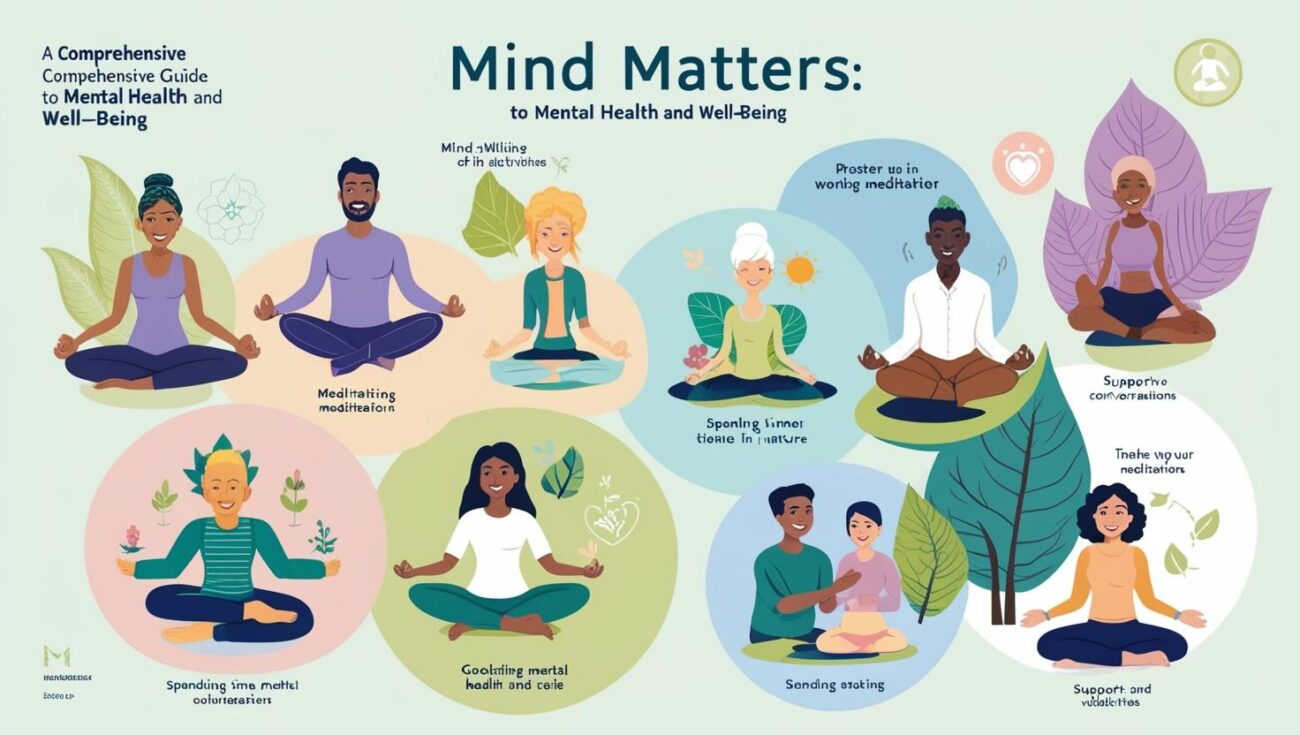Introduction:
Imagine carrying a heavy backpack every day, filled with invisible weights—stress, anxiety, self-doubt, and exhaustion. Now, imagine the relief of setting that backpack down. That’s the power of prioritizing mental health.
Mental health isn’t just about avoiding illness—it’s about thriving, feeling balanced, and handling life’s challenges with resilience. Just like we care for our physical health, our minds need attention, too. Unfortunately, stigma and misconceptions often keep people from seeking help or practicing self-care.
In this guide, we’ll explore the importance of mental health, common challenges people face, and practical ways to nurture a healthier mind. Whether you’re looking to improve your own well-being or support someone else, this guide will provide insights and resources to help build a stronger, healthier mindset.
Healthline – Depression Motivation Tips
What is Mental Health and Why Does It Matter?
Mental health refers to our emotional, psychological, and social well-being. It influences how we think, feel, and behave in everyday life. It also affects how we handle stress, relate to others, and make decisions. Good mental health allows individuals to cope with challenges, maintain fulfilling relationships, and lead productive lives.
Neglecting mental health can lead to serious consequences, including anxiety, depression, burnout, and even physical health issues such as heart disease and weakened immunity. Just as we exercise to keep our bodies fit, we must also engage in habits that nurture our minds.
The Importance of Mental Health
- Improves Quality of Life
When mental health is prioritized, people experience greater happiness, stronger relationships, and increased productivity. A stable mental state allows for better focus, creativity, and decision-making.
- Enhances Physical Health
Mental and physical health are deeply connected. Chronic stress and anxiety can lead to high blood pressure, digestive issues, and weakened immunity. Taking care of mental well-being contributes to better sleep, healthier eating habits, and overall wellness.
- Strengthens Relationships
Good mental health fosters healthy communication, empathy, and emotional stability in relationships. Whether with family, friends, or colleagues, emotional well-being plays a crucial role in building meaningful connections.
- Boosts Resilience and Coping Skills
Life is full of challenges, but a strong mind helps navigate stress, setbacks, and unexpected events with greater ease. Those who prioritize mental health develop better coping strategies, reducing the risk of long-term emotional distress.
Strategies to Achieve Mental Health and Well-Being
Implementing effective mental health strategies not only promotes better health but also fosters a positive lifestyle:
1. Practice Self-Care Daily
- Prioritize adequate sleep (7-9 hours per night).
- Eat a balanced diet rich in nutrients that support brain function.
- Engage in physical activity—exercise releases endorphins, reducing stress. Self-care for mental health is essential!
2. Manage Stress Effectively
- Practice deep breathing or meditation to calm the mind.
- Break tasks into manageable steps to avoid feeling overwhelmed.
- Set boundaries to prevent burnout in work and personal life.
3. Stay Connected with Others
- Spend time with loved ones to maintain a sense of belonging.
- Talk openly about feelings and seek emotional support when needed.
- Join a community group or engage in social activities to prevent isolation.
4. Engage in Activities That Bring Joy
- Pursue hobbies and interests that provide fulfillment.
- Take breaks and allow time for relaxation.
- Practice gratitude by acknowledging positive aspects of life.
5. Seek Professional Help When Needed
- Therapy and counseling can provide tools to manage emotions and challenges.
- Medication may be beneficial for some individuals under professional guidance.
- Mental health hotlines and support groups offer immediate assistance.
Final Thoughts
Mental health is not a luxury—it’s a necessity. Just as we care for our physical health, we must actively nurture our minds. By prioritizing self-care, managing stress, staying connected, and seeking support when needed, we can create a foundation for long-term mental well-being.
Remember, taking care of your mind isn’t a sign of weakness—it’s a sign of strength. Mind matters, and so do you.
Conclusion
Mental health is the foundation of a fulfilling and balanced life. By understanding its importance, we can take proactive steps to nurture our emotional and psychological well-being. Prioritizing self-care, managing stress, staying connected, and seeking professional help when needed are essential strategies for maintaining a healthy mind.
Just as we care for our physical health, mental well-being deserves attention, compassion, and effort. Let’s break the stigma surrounding mental health, support one another, and create a world where taking care of our minds is a normal and valued part of life.
Your mind matters—start prioritizing your well-being today. Take one small step, whether it’s practicing mindfulness, reaching out to a friend, or seeking professional guidance. A healthier, happier you begins with making mental health a priority.


3 thoughts on “Mind Matters: A Comprehensive Guide to Mental Health and Well-Being”